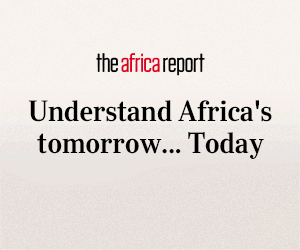South Africa to mark 30 years of freedom amid inequality and tense election ahead
South Africa will mark 30 years of freedom this Saturday April 27, as the country remembers the day in 1994 when millions cast their vote in South Africa’s first ever democratic elections.
South Africans celebrate Freedom Day on April 27 each year, marking the end of the brutal system of racial discrimination known as apartheid.
As 72-year-old Nonki Kunene walks through the corridors of Thabisang Primary School in Soweto, South Africa, she recalls the joy she and many others felt 30 years ago when they voted for the first time.
It was at this school on April 27, 1994 that Kunene joined millions of South Africans to brave long queues and cast a vote in South Africa’s first ever democratic elections after years of white minority rule which denied Black South Africans the basic right.
Like many things in South Africa, the school has changed and what used to stand there as a school hall has now been turned into several classrooms.
“I somehow wish we could go back to that day, because of how excited I was and the things that happened thereafter,” said Kunene, referring to Nelson Mandela becoming the country’s first ever Black president and the introduction of a new Constitution.
It afforded all South Africans equal rights, abolishing the racially discriminative system of apartheid.
For many who experienced apartheid, the suffering of those years remains etched in their collective memory.
“I cannot forget how we suffered at the hands of whites. In the city at night, there were white bikers with hair like this (describing a mohawk-like hairstyle) who would brutally assault a Black person if they saw them walking on a pavement. Those white boys were cruel.”
″If they saw you walking on the pavement, you would be assaulted so badly and left for dead,” said 87-year-old Lily Makhanya, whose late husband died while working in the anti-apartheid movement’s underground structures.
For Makhanya and many others who braved the lengthy queues to vote 30 years ago, 27 April 1994 represented a turning point from a brutal past to prosperous future.
Today’s challenges
However, South Africa will on Saturday host celebrations to mark 30 years of freedom and democracy with much of the enthusiasm and optimism which characterized that period having subsided as Africa’s most developed economy faces a myriad of challenges.
These include widening inequality as the country’s Black majority continues to live in poverty with an unemployment rate of more than 32%.
According to the country’s official statistics, more than 16 million South Africans rely on monthly welfare grants for survival.
Public demonstrations on South African streets have become common as communities protest against the ruling African National Congress’ failure to deliver job opportunities and basic services like water and electricity.
An electricity crisis that has resulted in power blackouts that are devastating the country’s economy has added to the party’s woes as businesses and homes are sometimes forced to go without electricity for up to 12 hours a day.
A country of grim contrasts
Areas like the affluent Johannesburg suburb of Sandton, which hosts beautiful skyscrapers and luxurious homes, are an example of the economic success enjoyed by a minority of the country’s population.
But the township of Alexandra, which lay a few kilometres from Sandton, is a stark reflection of the living conditions of the country’s mostly poor Black majority where sewage from burst pipes flows on the streets and uncollected rubbish piles up on pavements.
Such contradictions are plenty across the country’s major cities including the capital Pretoria and the city of Cape Town, and remain at the centre of what is expected to be one of the country’s most fiercely contested elections.

For the first time since it came into power in 1994, polls are indicating that the ANC might receive less than 50% of the national vote, which would see it losing power if it does not manage to form a coalition with some smaller parties.
On Saturday, President Cyril Ramaphosa will deliver a Freedom Day message to the country during celebrations in the capital Pretoria.


